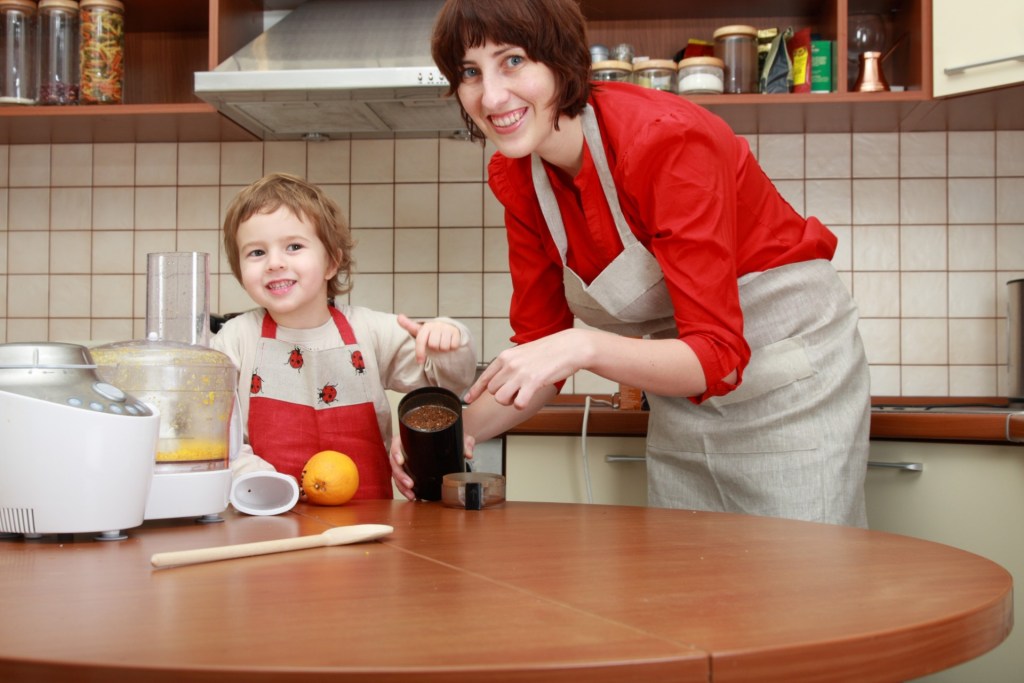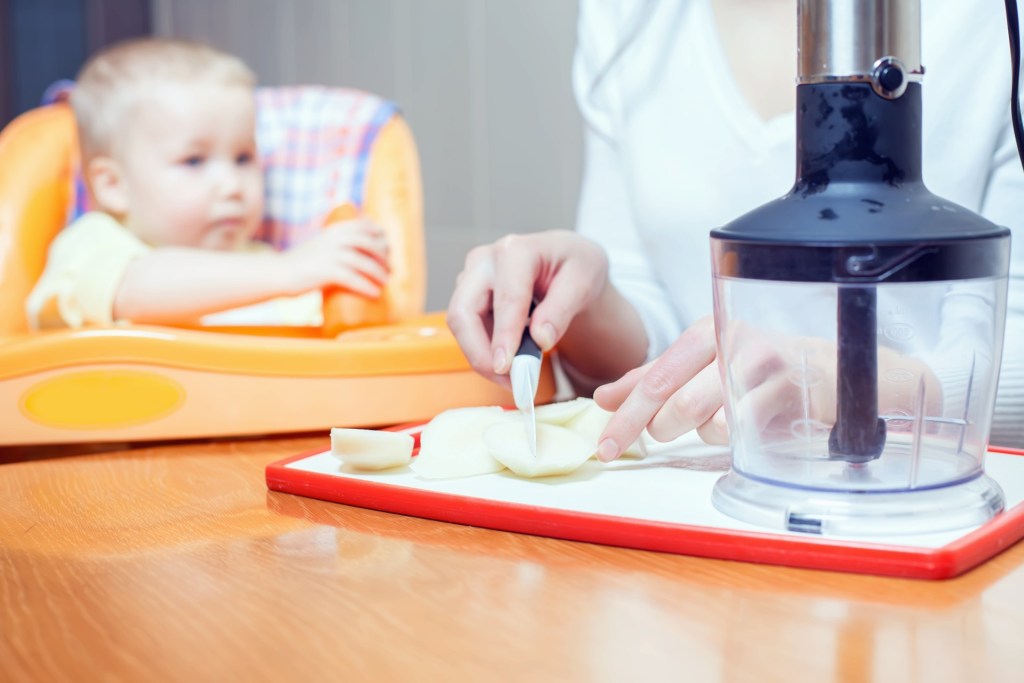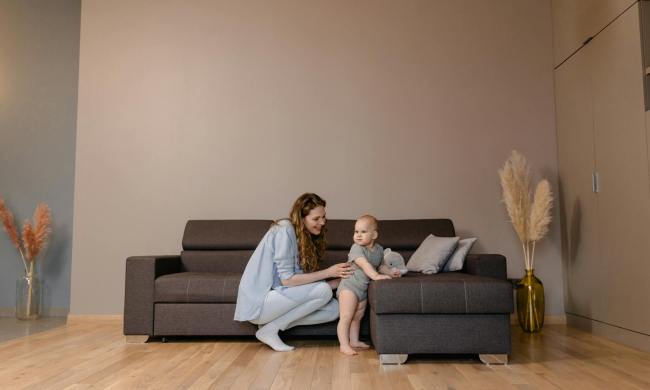You’ve probably made a list of equipment for making baby food. And you’ve probably jotted down both ‘processor’ and ‘blender’ in it, unsure which to get. If you are contemplating whether to use a food processor or a blender when preparing baby food, you’re not alone. New moms have been debating this issue for years. Both kitchen tools have specific things they do well, as we note below. But regardless of which tool you decide on, you’ll have peace of mind knowing your baby is getting top-quality, nutritious food without additives and preservatives. Plus, you’ll save money by not having to purchase prepackaged food at the store.
Let’s take a look at each kitchen tool and see what it does well.
Food processor

This kitchen item is ideal for speedy food preparation. For chopping, shredding, slicing, and dicing, a food processor is your go-to kitchen tool. Though it usually just works on one speed, it does give you more control over how fine you want to dice or shred your baby’s food. It’s also perfect for grinding grains to make baby cereal. For best results, use a processor with solid foods.
Most food processors also include interchangeable attachments such as slicing discs and blades, which make them very versatile in the kitchen. They also feature extremely sharp blades that can handle even the thickest foods.
Blender

A blender is best used for mixing liquids and making sauces. While a blender’s blades are not super sharp, its powerful motor can create smooth textures in foods like hollandaise sauce, purees, soups, smoothies, and cocktails. They also work well with mushy foods like bananas or avocados.
What are the differences?
So, what are the basic differences between a food processor and a blender? A food processor maintains one speed only and most blenders feature varying degrees of speed. However, a food processor’s blades rotate in different directions resulting in finely chopped food. It also has a pulse action, giving you greater control while processing baby foods. A food processor’s bowl is flat, making it ideal for dry ingredients and dough. It eliminates much of your prep work such as grating cheese, chopping onions, or kneading dough.
On the other hand, blenders have rotating, blunt blades in a cone-shaped base and can quickly liquefy mushy foods. An important thing to note when using a blender: Make sure there is always enough liquid in the blender’s base or contents will bounce around above the blades instead of being dragged down into the blades themselves.
Which is best for making baby food?
For baby food, the food processor probably offers more versatility. With its interchangeable blades and discs, you can grind up grains, chop fruit, puree meat, etc.
Blenders are more widely known for their food liquefying prowess. They even chop ice! A blender is great for pureeing your baby food. However, it is not ideal for making small batches of baby food due to the shape and size of the blender basket.
So, there you have it. At the end of the day, it really just depends on your preference and how you plan to use this kitchen appliance. If possible, try borrowing a blender and a food processor and compare the two the next time you make baby food. That way you can be sure to purchase the right kitchen tool for your needs.


